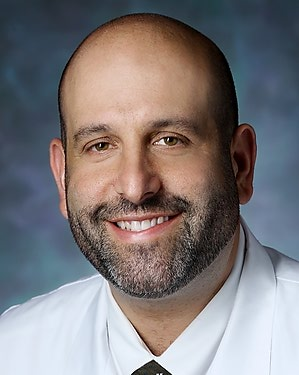Research Lab Results
-
Kenneth W. Kinzler Laboratory
Dr. Kinzler’s laboratory has focused on the genetics of human cancer. They have identified a variety of genetic mutations that underlie cancer, including mutations of the APC pathway that appear to initiate the majority of colorectal cancers and IDH1/2 mutations that underlying many gliomas. In addition, they have developed a variety of powerful tools for analysis of expression and genetic alterations in cancer. Most recently, they have pioneered integrated whole genome analyses of human cancers through expression, copy number, and mutational analyses of all the coding genes in several human cancer types including colorectal, breast, pancreatic and brain. The identification of genetic differences between normal and tumor tissues provide new therapeutic targets, new opportunities for the early diagnosis of cancer, and important insights into the neoplastic process.
-
The mission of the Lemberg research group is to understand metabolism in childhood/young adult cancers in order to develop a better understanding of how these cancers develop, how they respond to treatments, and how children can go on to live healthy lives with or after a cancer history. We aim to investigate how tumors and the surrounding physiologic environments interact to drive nutrient use so that the tumor can grow and spread, and how the presence of a cancer affects the development of the whole child. Our ultimate goal is to improve outcomes for children and young adults with cancer.

-
Lonny Yarmus Lab
Clinical trials conducted in the Lonny Yarmus Lab focus primarily on minimally-invasive diagnostic testing for patients with lung cancer and local therapy options for malignant airway obstructions. We investigate ways to improve the early diagnosis of lung cancer, as well as the treatment of later-stage cancer, using the least invasive methods possible. We are also part of the LIBERATE clinical study for patients who have difficulty breathing and suffer from severe emphysema.
-
Lei Zheng Lab
Zheng’s research focuses on two R01-funded projects; first, the group has developed a pancreatic cancer immunotherapy research program on a neoadjuvant therapy platform as well as a number of preclinical models of pancreatic cancer for developing innovative immunotherapy strategies. The group has applied the knowledge gained from pancreatic cancer immune-based therapies to the development of a colorectal cancer GVAX vaccine. Second, the group is aimed at understanding the mechanistic roles of the tumor microenvironment in cancer development and metastasis and identifying new targets for pancreatic cancer therapies by dissecting the tumor microenvironment of pancreatic cancer. -
Lee Bone Lab
Research in the Lee Bone Lab uses community-based participatory approaches to promote health in underserved urban African-American populations. We conduct randomized clinical trials on cardiovascular disease, diabetes and cancer detection and control in order to test the success of community interventions. We focus in particular on making interventions sustainable and on implementing electronic education to improve communication.
-
Florin Selaru Lab
Research interests in the Florin Selaru Lab comprise the molecular changes associated with the transition from inflammatory states in the GI tract (colon, stomach, biliary tree) to frank cancers. In addition, our current research—funded by the AGA, FAMRI and the Broad Foundation—works to further the understanding of cancer development and progression in the gastrointestinal tract.
-
Franck Housseau Lab
The Franck Housseau Lab focuses on the role of the microbiome in colorectal tumorigenesis and on developing a better understanding of the tumor immune microenvironment. The lab is currently working to define the biomarkers of a pre-existing antitumor immune response in metastatic colorectal cancer to define a population of patients eligible for checkpoint blockade therapies.
-
In-vivo Cellular and Molecular Imaging Center
The In-vivo Cellular and Molecular Imaging Center conducts multidisciplinary research on cellular and molecular imaging related to cancer. We provide resources, such as consultation on biostatistics and bioinformatics and optical imaging and probe development, to understand and effectively treat cancer. Our molecular oncology experts consult on preclinical studies, use of human tissues, interpretation of data and molecular characterization of cells and tumor tissue. -
Hsin-Chieh Yeh Lab
Work in the Hsin-Chieh Yeh Lab focuses on clinical trials and cohort studies of diabetes, obesity and behavioral intervention, cancer and hypertension. Recent investigations have focused on novel risk factors and complications related to obesity and type 2 diabetes, particularly lung function, smoking and cancer. We recently co-led a randomized clinical trial of tailored dietary advice for consumption of dietary supplements to lower blood pressure and improve cardiovascular disease risk factors in hypertensive urban African Americans.
-
Heng Zhu Lab
The Zhu lab is focused on characterizing the activities of large collection of proteins, building signaling networks for better understanding the mechanisms of biological processes, and identifying biomarkers in human diseases and cancers. More specifically, our group is interested in analyzing protein posttranslational modifications, and identifying important components involved in transcription networks and host-pathogen interactions on the proteomics level, and biomarkers in human IBD diseases.

